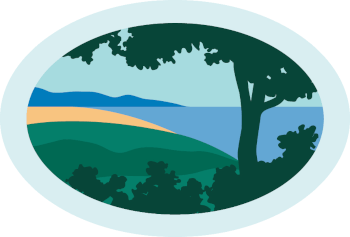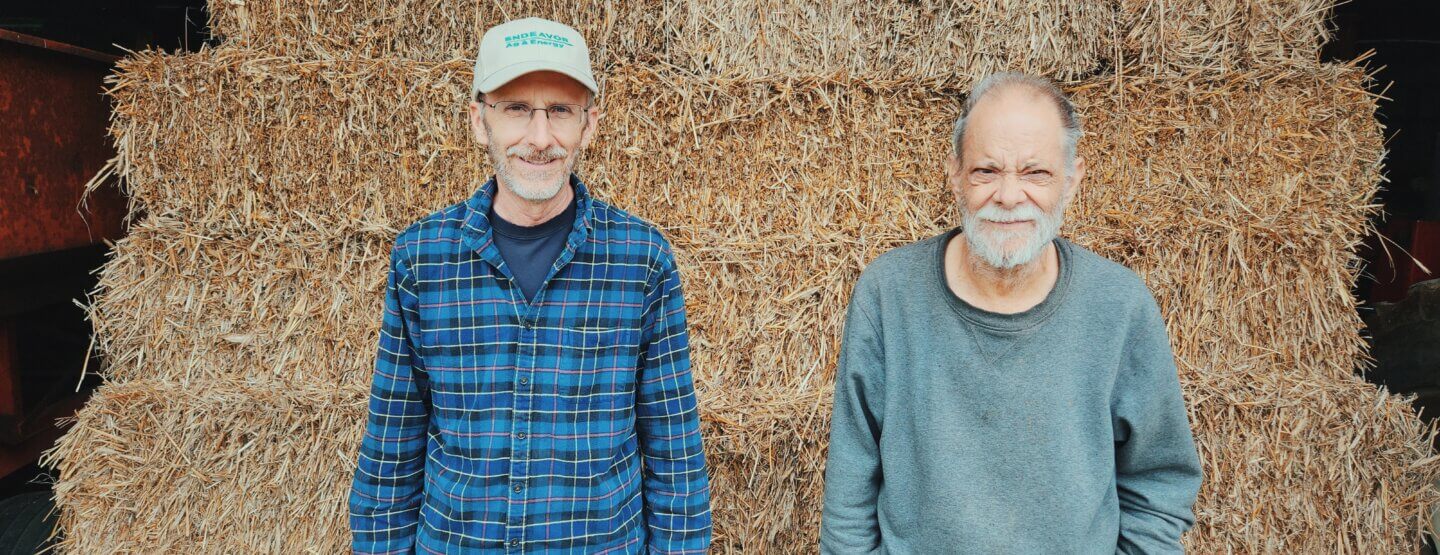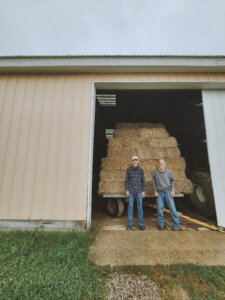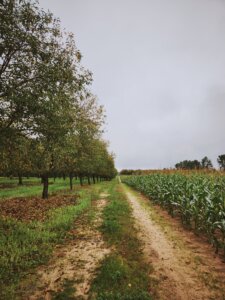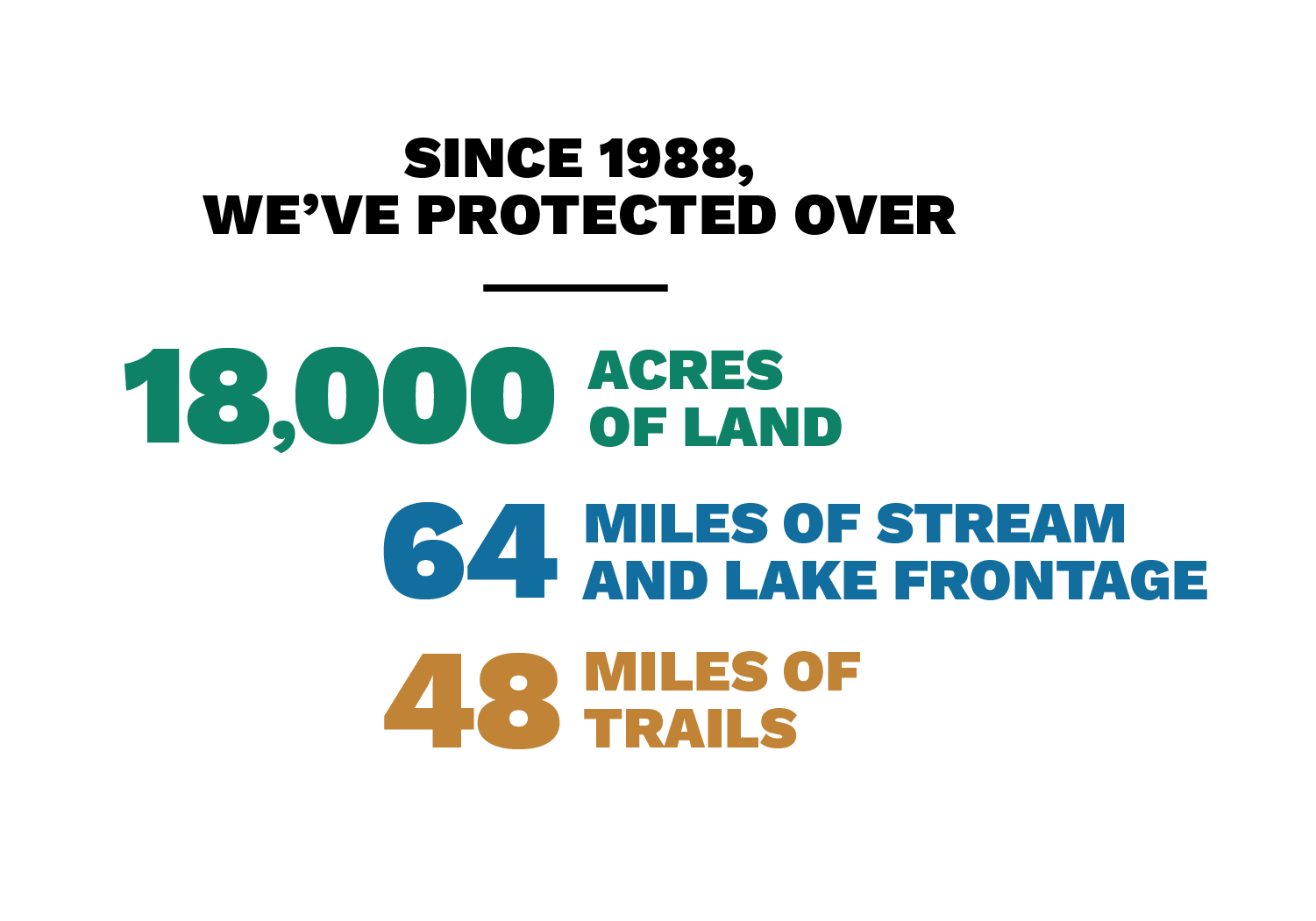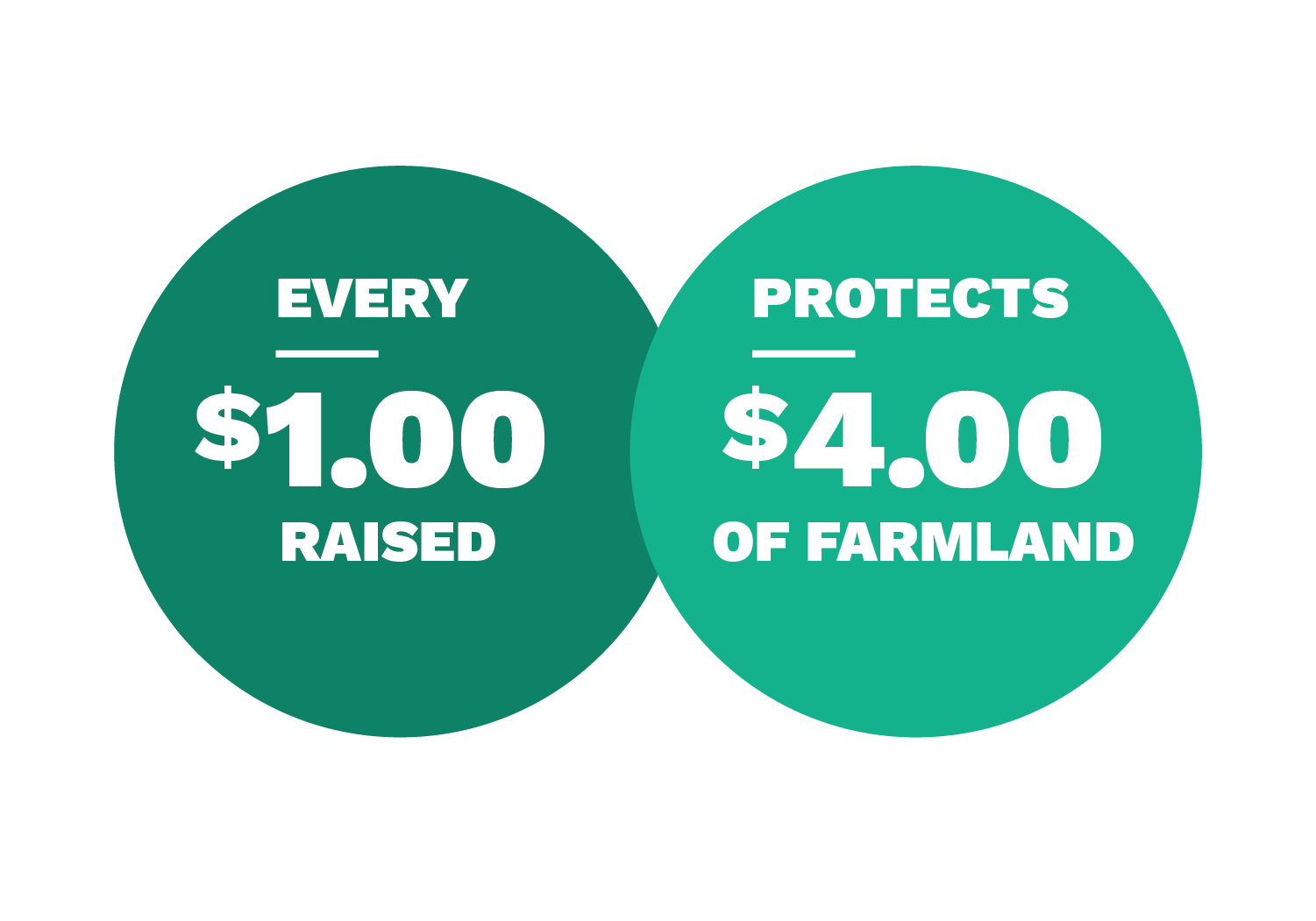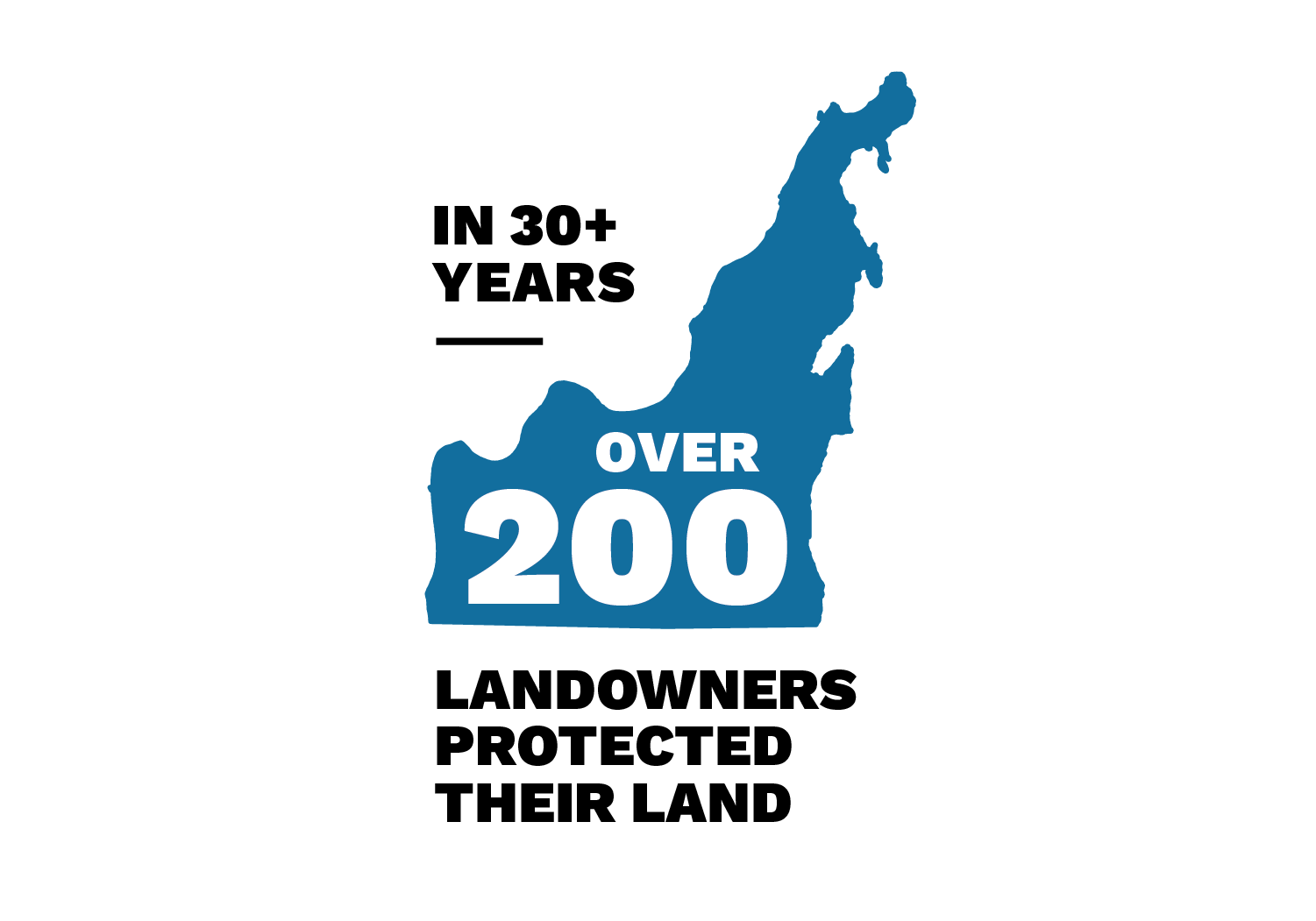By: Brighid Driscoll
More than 150 acres of Solon Township farmland was recently protected with a perpetual conservation easement. This project is possible thanks to Wes Parker, his siblings, the collaborative grant leadership through the Grand Traverse Band of Ottawa & Chippewa Indians, Farm Bill funding from the Natural Resources Conservation Service’s Regional Conservation Partnership Program, and generous donors like you.
One of the best parts of working for the Leelanau Conservancy is sitting around a kitchen table with landowners talking all things Leelanau. Carolyn Faught told me it was something she truly enjoyed, and hoped I would too. It took me no time to share her sentiments, and sitting with Wes and his brother Dave, I’m reminded of why. Sprawled across the vintage yellow table is a copy of the book Remembering Solon and a custom calendar filled with family photos. “My sister makes one for all of us every year for Christmas,” Dave says.
Family is of the utmost importance to the Parkers. The house we sit in is the one Wes and his siblings grew up in—where he found his love of farming. The Parker family’s Leelanau roots run deep. Remembering Solon, a locally published historical book, lists Wes’s great-great grandparents Franz and Carolina Amtsbuechler as early settlers of Solon in the 1800s. Franz was a farmer, kicking off a long line of family farming, including Wes’s dad, Keith. Keith grew up in the house next door and attended Solon School. He was paid weekly to get to the one-room schoolhouse early, build a fire, and stay after to clean up. “Even as a kid, my dad made money,” Dave laughed.
Wes inherited Keith’s ambitious spirit. He began farming pumpkins as a teenager, employing Dave’s help to transport and sell them around the county. Merchants liked that he cut the winding vine neatly off without any knife marks. Wes liked that he could make a profit doing something he enjoyed and was good at.
He was only 21 when he purchased his first parcel of farmland in the 1980s; 39 acres that currently grow sweet cherries and corn. Then, in 2011, he bought another 113 acres of farmland that he and his family had been leasing since the late ‘80s. “We grow mostly corn. But we also grow soybeans, alfalfa, rye, and some grass hay,” said Wes.
The Parkers have been implementing no-till farming for decades. No-till farming has numerous benefits and continues to grow in popularity. The practice helps preserve soil health by keeping precious topsoil intact, preventing nutrient loss and erosion. It also reduces runoff and stores carbon in the soil, helping reduce greenhouse gas emissions. The advantages go on. “You’ve gotta do what works,” Wes explains. “Everybody’s learning all the time. With farming, you think you’ve got it, but then you realize there’s more, and you can do things better.”
There was no specific moment when Wes decided to protect the farmland permanently—just an innate feeling. “My dad and I were on board with this for as long as I can remember. You can’t have a viable agricultural community without land available for farming. What the Conservancy has done here in Leelanau is remarkable. It’s a good combination of an exceptional organization with people that support them to get the job done.”
Wes knows that farming isn’t for everyone. And while he hopes one of the next generation of Parkers is interested in a farming future, he acknowledges that the future is unknown, “it’s nice to have set plans, but life isn’t always well-ordered.” Plans or not, he’s comforted in knowing that there will be permanent farmland available.
